Filter by

Music, the Avant-Garde, and Counterculture = Invisible Republics
This book studies how the complex relationship between music, the avant-garde, and counterculture challenges all sorts of boundaries. By exploring the avant-garde as a thoughtful inquiry into experimentation, creativity, and originality, we bring to the fore the "invisible republics" of culture, the ephemeral, the suppressed, and the unconformity of artistic and political undercurrents. Avant-g…
- Edition
- 1
- ISBN/ISSN
- 9783031695148
- Collation
- XXVI, 300 hlm; ill., lamp.,
- Series Title
- -
- Call Number
- -
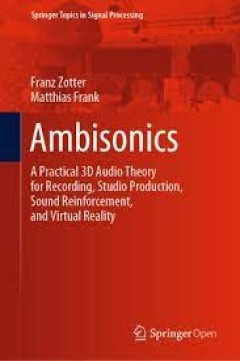
Ambisonics : A Practical 3D Audio Theory for Recording, Studio Production, So…
This open access book provides a concise explanation of the fundamentals and background of the surround sound recording and playback technology Ambisonics. It equips readers with the psychoacoustical, signal processing, acoustical, and mathematical knowledge needed to understand the inner workings of modern processing utilities, special equipment for recording, manipulation, and reproduction in…
- Edition
- -
- ISBN/ISSN
- 978-3-030-17207-7
- Collation
- XIV, 210
- Series Title
- Springer Topics in Signal Processing (STSP, volume 19)
- Call Number
- 714 ZOT a
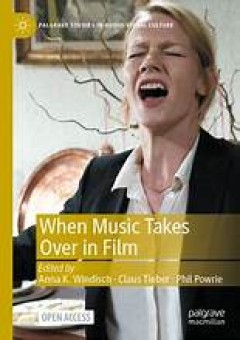
When Music Takes Over in Film
Audio-Visual Culture
- Edition
- 1
- ISBN/ISSN
- 978-3-030-89155-8
- Collation
- oer.unej.ac.id
- Series Title
- Palgrave Studies in Audio-Visual Culture
- Call Number
- -
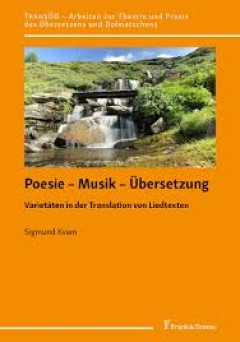
Poesie – Musik – Übersetzung
Die Übersetzung von Kunstliedern ist ein reizvoller Forschungsgegenstand: In ihrer musikalischen Ästhetik vereinen sich zwei „heilige Originale“ – die Poesie des Textes eines namhaften Dichters und die Melodie eines angesehenen Komponisten. Angesichts der langen Tradition des Kunstliedes im deutschen Sprachraum ist die Verwendung des Deutschen in der Übersetzungspraxis von besonderem…
- Edition
- 1
- ISBN/ISSN
- 978-3-7329-8936-2
- Collation
- 210
- Series Title
- TRANSÜD. Arbeiten zur Theorie und Praxis des Übersetzens und Dolmetschens
- Call Number
- -

Ethnomusicology, Queerness, Masculinity
This open access book explores the disciplinary, disciplined, and recent interdisciplinary sites and productions of ethnomusicology and queerness, arguing that both academic realms are founded upon a destructive masculinity—indissolubly linked to coloniality and epistemic hegemony—and marked by a monologic, ethnocentric silencing of embodied, same-sex desire. Ethnomusicology’s fetishizati…
- Edition
- -
- ISBN/ISSN
- 978-3-031-15313-6
- Collation
- X, 240
- Series Title
- -
- Call Number
- -

New Music and Institutional Critique
While institutional critique has long been an important part of artistic practice and theoretical debate in the visual arts, it has long escaped attention in the field of music. This open access volume assembles for the first time an array of theoretical approaches and practical examples dealing with New Music’s institutions, their critique, and their transformations. For scholars, leaders, a…
- Edition
- -
- ISBN/ISSN
- 978-3-662-67131-3
- Collation
- XIV, 205
- Series Title
- -
- Call Number
- -

Music and the Cultural Production of Scale
This open access book shows how geographical scales are made through music. Scales are sets of spatial frames, abstractions or categories that denote the size, proportion, level, extent or hierarchical relations of phenomena. They are neither natural nor neutral but actively produced, with real political effects. But what role do cultural practices play in the production of scale? Phil Do…
- Edition
- -
- ISBN/ISSN
- 978-3-031-36282-8
- Collation
- VIII, 108
- Series Title
- -
- Call Number
- -
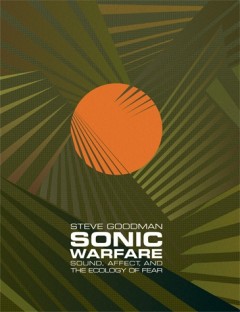
Sonic Warfare: Sound, Affect, and the Ecology of Fear
"Sound can be deployed to produce discomfort, express a threat, or create an ambience of fear or dread - to produce a bad vibe. Sonic weapons of this sort include the "psychoacoustic correction" aimed at Panama strongman Manuel Noriega by the U.S. Army and at the Branch Davidians in Waco by the FBI, sonic booms (or "sound bombs") over the Gaza Strip, and high-frequency rat repellants used again…
- Edition
- -
- ISBN/ISSN
- 9780262258838
- Collation
- 1 online resource (xx, 270 pages).
- Series Title
- -
- Call Number
- -
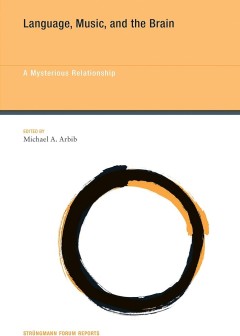
Language, Music, and the Brain: A Mysterious Relationship
Through four key themes, this book explores the relationships between language, music, and the brain and the crosstalk between them: song and dance as a bridge between music and language; multiple levels of structure from brain to behaviour to culture; the semantics of internal and external worlds and the role of emotion; and the evolution and development of language. Specially commissioned exp…
- Edition
- -
- ISBN/ISSN
- 9781461934394
- Collation
- 1 online resource (xiii, 662 pages).
- Series Title
- -
- Call Number
- -
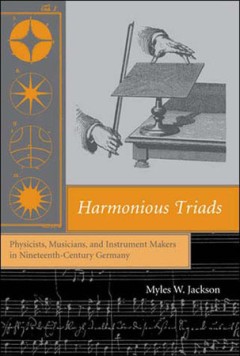
Harmonious triads : physicists, musicians, and instrument makers in nineteent…
An analysis of the intersection of science and music in nineteenth-century Germany: how music provided physicists with a venue for experiments as well as a cultural resource, and how physics assisted musicians in their art and musical instrument makers in.OCLC-licensed vendor bibliographic record.
- Edition
- -
- ISBN/ISSN
- 9780262276153
- Collation
- 1 online resource (x, 395 pages) : illustrations music.
- Series Title
- Transformations: Studies in the History of Science and Technology
- Call Number
- 700 JAC h
 Computer Science, Information & General Works
Computer Science, Information & General Works  Philosophy & Psychology
Philosophy & Psychology  Religion
Religion  Social Sciences
Social Sciences  Language
Language  Pure Science
Pure Science  Applied Sciences
Applied Sciences  Art & Recreation
Art & Recreation  Literature
Literature  History & Geography
History & Geography